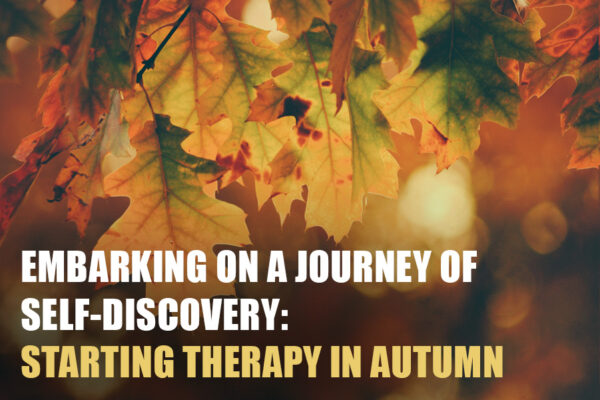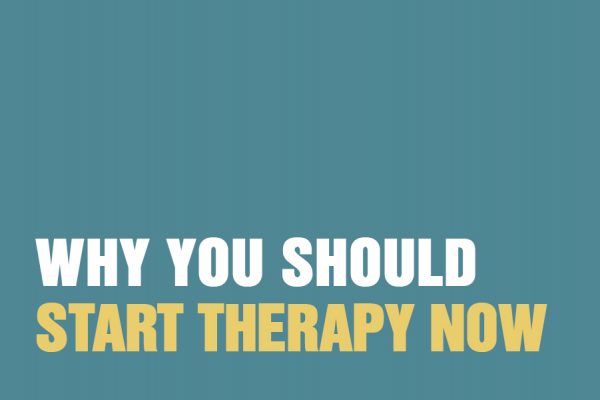Violet Karamagi, is a Counselling Services Manager at The Awareness Centre in addition to her private therapy practice. She is a trained Neuro-Linguistic Programming Practitioner and is currently pursuing her Masters in Transactional Analysis Psychotherapy.
Violet explores her journey and insights as a black therapist, both during her training and in her professional practice.
Violet on her Training
My training is at Metanoia and I do relational Transactional Analysis (TA). The full training is five years, so I’m still doing it now actually. But, once you have 150 [client] hours, you are signed off for private practice. There’s also the option for an interim diploma (which involves writing a case study and sitting an exam), which I’ve also done now, and I’m continuing to work on my Masters and become a CTA (Certified Transactional Analyst).
I’m nearly four years in now and, it draws you in, but the training is the hardest thing I’ve ever done in my whole life. Honestly, it’s so rigorous and I’m grateful that I made that choice because I feel like every aspect of training has been touched on.
[Counselling training is] very personal. And I’ve been on such a journey myself because I’ve been in therapy now for three years as well, and also have a personal supervisor, which has made a difference because when things come up in client work, I take them to supervision and then I have to go back to my therapist and it’s an endless loop.
Violet on Transactional Analysis
So, transactional analysis is based on the principle of people. I’m okay, you’re okay, we’re all okay and, based on that, we all deserve to be treated with respect and dignity. And as we make choices, we are allowed to change our minds as well. Everyone’s okay with where they are at in life.
Something about TA I really love is it looks a lot at communication; what goes on in our minds, how we communicate with others, and a mix of what’s going on between people. It’s in the name, isn’t it? It’s transactional, you know, it’s what’s going on between people.
My favourite theory is Injunctions. Injunctions are drivers for how you go through life; ‘pleaser’, ‘be strong’, ‘hurry up’, etc. But then also underneath that the injunctions are; ‘don’t feel’, ‘don’t be important’, ‘don’t enjoy’, so it’s always connecting the dots and I find it fascinating.
Initially, I was thinking of doing an integrative course, but then I felt maybe that would be overwhelming. So, I thought I would root myself in one modality and integrate others as I gain experience. I was drawn to TA because I find it’s very simple and very simple to explain to clients, clients love it and it’s got frameworks. I’ve got a very analytical mind, so I like to put something in a box first – put it in a framework – before I open it out and take it apart, you know? Like, let me understand it with this lens before I try and figure other things out. So, that’s why I rooted in TA.
Violet on Difference and Diversity
I have been very used to being the only black person in the room but, with therapy training, I’m now having to look at it – and this comes with working with black clients – and I’m drawn to understand the diversity and difference. And actually, my course is predominantly white which I hadn’t really appreciated until my therapist pointed it out.
She said ‘Why did you go to a predominantly white institute?’ And it never occurred to me that it’s a thing. And, working with clients, it’s been a real eye-opening exercise. Last month I had to change my primary supervisor to a black supervisor. I’ve had a white supervisor for the past three years until I changed to a new black supervisor, and that’s because there are cultural blind spots.
As much as the training is thorough, I think what’s missing is the cultural perspective and, I’ll give you an example; In the black community, many people are brought up to be strong and be a team, and it’s a survival thing, whereas in the classroom it’s [taught as] be strong because it’s a way to be accepted, without understanding the nuances of trauma, transgenerational trauma, the culture, the expectation. Or, even the thing about pleasing others.
Sometimes in therapy, we are told to keep an eye on [people pleasing] and why you people please, etc. But then in the black community, it’s all about community and helping one another. And so I’m wondering whether the pleasing comes from having to survive as a community; you have to watch out for each other, because we’re all in survival mode, and this is where it goes; transgenerational, transcultural, the trauma, the walls… It’s really deep, which… I think there needs to be more of it [cultural perspective] in the therapy world.
I guess you don’t know what you don’t know, because, if you’re a predominantly white [training institute], certain aspects wouldn’t make sense when they’re taught and the tutors don’t know what they don’t know until maybe a person of colour steps in and says ‘oh by the way these issues need looking at’. I think the more black therapists are trained, the more maybe this would be entered into the curriculum.
Violet on Therapy in the Black Community
There’s a lot of stigma in the black community around therapy, which comes from the ‘being strong’, and that going to therapy is a sign of weakness. There’s a lot of potential for shame because with the older generation, some of the ways that children are raised come from a survival perspective, and now things have changed. Being in the Western world, the need for survival and the threat isn’t there anymore. But this is where the trauma comes in; the threat is not there anymore, but the survival instinct is always there. So, you’ve got parents raising children in a different environment, but they are raising them the way they were raised.
And, it just occurred to me, why the older generation is against therapy. [It’s] because it rocks the foundation of this community, you know, these are hundreds of years on which communities have been built, and then for someone to come in and say ‘by the way, how you’ve been doing things is not really that great’. It shakes the foundation to the core. So it’s really a difficult one to navigate, and I think it will take time, more education, more black therapists training, and more getting people into therapy. But that’s a whole other conversation, really.
Having said that, as a black person, it might be easier to go to a white [therapist], because I won’t feel judged. It’s that nuanced as well. I don’t think it’s clear cut, although someone could argue going to a black therapist, they will understand where I’m coming from. That helps, especially when there’s shame involved and fear of judgment.
It maybe goes back to the community aspect – about creating safety and, you know, having wider conversations about the things that bring shame within us, within the community, and so on. This is one subject that I’m really passionate about; it’s how gay black people are ostracised within their own [black] community and have no one to talk to. So, it’s like, can we be open about these things that are real? But there’s a shame within us.
I can imagine a black gay man would find it hard to go to a black therapist because there is that fear of judgement and not understanding. I think that more open conversations in the community will help. But also, it’s going to take years of undoing. And there’s a lot of opposition that comes with that. ‘How dare you shake up… these are our foundations, we don’t believe in this’. There’s culture, there’s religion, which makes it really hard to speak out against certain things. Sexuality is… you know… there’s a backlash that comes with that.
You know, there’s that respect of; ‘these are the values’ and also understanding; ‘okay, you needed these values to survive, so how can we integrate ourselves in a new way?’ And I think that’s going to take years.
Another area that I’m really passionate about is the men. Women are more open to therapy than men and, with men there is the whole ‘be strong’ message and ‘going to therapy is a sign of weakness’. So there’s being black, but then there’s also being a black man as well. It would be nice if there were more male therapists, and men being encouraged to come to therapy, to be that vulnerable, to explore stuff.
Violet on Working with Difference and Diversity in her Therapy Room
So, in my therapy room, I’ve learned to be curious. I actually had a very recent example where […] my very first couple was a lesbian couple, and initially, I was approaching it from the perspective of ‘it’s a relationship’, and then I realised, through supervision, that me approaching it like that is the same way as someone saying ‘I don’t see colour’. So, I had to learn to be curious and educate myself about what might be different about lesbian relationships, how do lesbians conduct their relationships, and so on. And it’s the same about colour, someone understanding the aspects of the black community, the different nuances, and not saying ‘all black people are the same’, because it’s layers within layers, you know? It’s all layered.
As the therapist, we need to take responsibility to educate ourselves about the client. Yes, we can’t know everything about the client, but it’s important to do some homework – do some reading and educate ourselves. But we also can’t assume that the client is going to fit into the research that we’ve done.
You know, I had this recently, it came up in supervision with my white supervisor, who I think in educating herself found something about the ‘angry black woman’ and then asked me if I’m an angry black woman and I’m like ‘No, I’m not angry right now.’
And, there’s a lot of intersectionality as well that we need to take into consideration as therapists. It’s not just the race, it’s not just the colour, it’s religion, it’s culture, even culture within a culture. Within the family as well.
I’m just thinking about myself – I come from a country where there are 36 tribes. Although I’m black, from one country there are 36 different ways of cooking food…
It’s all about remaining present and being curious.
Violet on Self-Care
I noticed the isolation in private practice. I think if I did private practice by itself, it would get lonely because you see your clients and then that’s it. There’s no one really to talk to, but what I’ve tried to do is join a few communities online – other therapists to talk to and hear what goes on with them, what challenges they have and the support they need. They have very open conversations.
And, I’m lucky, I do my private practice at The Awareness Centre, but also do one day a week in Crystal Palace, and there’s a good community for the people who work in the rooms in that place too. There’s a WhatsApp group which is quite supportive.
And, for self-care, I try to keep weekends free to do nothing. Initially, I used to feel guilty about doing nothing, but I’m not doing nothing, I’m doing self-care.
Nothing is resting. It’s filling your cup.
What I’m finding now is that people [not clients] come to me a lot more with problems. People come and download to me and share their problems and I remind myself that I’m off the clock. Or, even with my kids; I used to feel guilty, like oh my goodness, what damage have I caused my kids [now that I’ve learned more about psychology], and then I remind myself that I’m just a mum, I’m not a therapist mum.
Violet’s Message to New Therapists Starting Training
You will not be the same person. It’s hard. It’s probably the hardest thing I’ve ever done, but what makes it hard is the internal work. It’s rewarding for me, but I don’t think my friends and family will think the same. Honestly, you lose friends, you lose relationships. You’re not putting up with their crap or you’re more assertive which can throw some people because they’re not used to it. I used to be very, very quiet, and now I’m very assertive, and I say ‘No’ a lot which throws people.
So, I would say to a new therapist; Be ready for the change. Your whole life is going to change, your relationships will change, and be ready for that. There’s a whole grief process that comes with that, and I don’t think anyone tells you about it.








